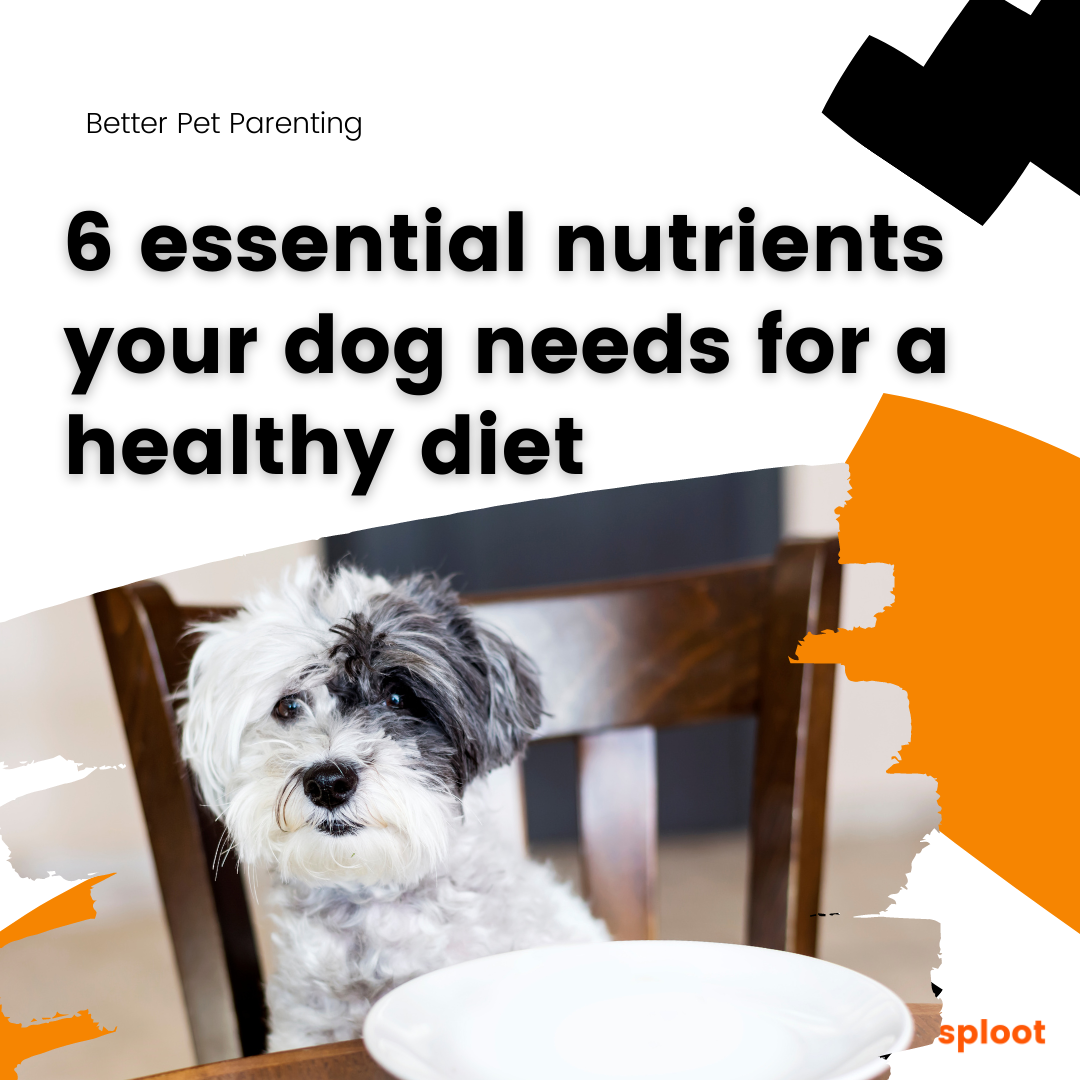6 essential nutrients your dog needs for a healthy diet

Feeding your dog can be the trickiest thing. Whether it is exercise or training, you have an idea of what your dog needs, when he is tired or energetic. With food, however, you have to be extra careful that it doesn’t affect them in the wrong way. At the same time, you also have to make sure that they are getting all the appropriate nutrients for their growth and well-being.
Let us discuss what these nutrients are and how you can make sure that you add them to your dog’s diet.
1. Water
Just like humans, water helps the dogs in digestion, regulating the body temperature, and in the smooth flow of blood. so make sure that your dog always has a bowl filled with clean and fresh water.
If you think he is not drinking enough water, mix some canned food in it, or you can also feed him water-based treats.
2. Fats
Fats are required to protect the internal organs and also to keep the skin and hair of your dog healthy. Omega 6 and Omega 3 are the essential fatty acids for your dog. This is because their body cannot produce these on its own.
These fats can be obtained from fish oil or plant-based oil like flaxseed.
3. Proteins
Dogs need protein to maintain their body structure which includes hair, nails, bones, muscles, skin. Since protein cannot be stored in the body, a constant source of protein should be maintained.
You can achieve this by including eggs, meat, fish, beans, and lentils in your dog’s diet.
4. Carbohydrates
A dog doesn’t need carbohydrates directly but they act as a fuel, because carbs are a main source of glucose. At the same time, they also play an important role in supplying vitamins and minerals.
Include foods like brown rice, barley, potatoes in your dog’s diet to compensate for this.
5. Vitamins
Vitamins play a huge role in the overall health of a dog. Vitamin D maintains the phosphorus levels, vitamin A strengthens the immune system, C and E are antioxidants, K helps in blood clotting, and B12 maintains the nervous system.
You can fulfill the dog’s vitamin needs through dark green leafy vegetables.
6. Minerals
Different minerals help in different body functions. Calcium is essential for bone formation, iron carries oxygen to the whole body, zinc helps in wound healing.
To balance all the minerals, you’ll need different foods. For example, meat gives phosphorus, bones provide calcium, shellfish give zinc, organ meat gives copper and iron.
Now that you know all the important nutrients, what remains is planning a balanced diet for your dog. Do it in a way that every meal is packed with one nutrient or the other. To make your task easy, you can simply set up reminders and plan the diet chart of your dog on the Sploot app.